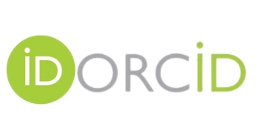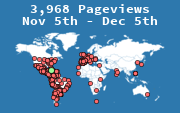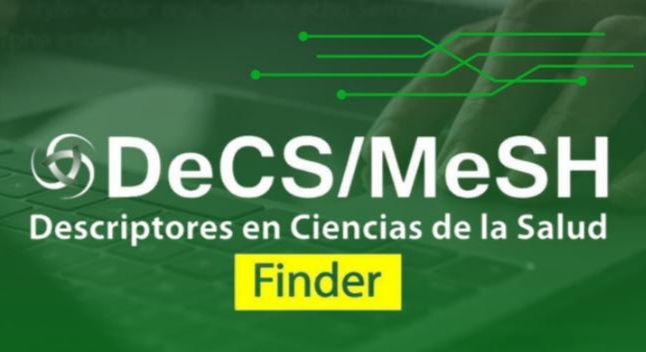Síndrome Costello. Reporte de un caso
Palabras clave:
síndrome de Costello, anomalías craneofaciales, insuficiencia del crecimiento, enfermedades raras.Resumen
El síndrome de Costello es una enfermedad poco frecuente, se caracteriza por talla baja, retraso en el desarrollo y facies característica. Se hereda con patrón autosómico dominante, aunque se han descrito muchos casos esporádicos, donde la mutación se produjo en células germinales, apareciendo de novo, como mutación nueva. Se presenta un caso con retardo en el desarrollo pondoestatural y psicomotor, asociado a facie tosca. Se considera importante el método clínico para realizar diagnóstico de estas enfermedades raras, donde es necesario la estimulación temprana y el asesoramiento genético a los familiaresDescargas
Citas
Goodwin AF, Snehlata O, Landan M, Cyril C, Jessica C. Massie, et al. Craniofacial and dental development in costello syndrome. Am J Med Genet A [Internet]. 2014 [citado 28 Sep 2016];10(6). Disponible en: http://www.ncbi.nlm.nih.gov/pmc/articles/PMC4115793/
Weaver NK, Wang D, Cnota J, Gardner N, Stabley D, Sol-Church K, et al. Early-Lethal Costello syndrome due to rare HRAS tandem base substitution (c.35_36GC>AA; p.G12E) associated pulmonary vascular disease. Pediatr Dev Pathol [Internet]. 2014 [citado 20 Sep 2016];17(6). Disponible en: http://www.ncbi.nlm.nih.gov/pmc/articles/PMC4294968/
Schwartz DD, Katzenstein JM, Hopkins E, Stabley DL, et al. Verbal memory functioning in adolescents and young adults with costello syndrome: evidence for relative preservation in recognition memory. Am J Med Genet A [Internet]. 2013 [citado 28 Sep 2016];161(9). Disponible en: http://www.ncbi.nlm.nih.gov/pmc/articles/PMC3745536/
García-Cruz R, Camats M, Calin GA, Chang-Gong L, Volinia S, Taccioli C, et al. The role of p19 and p21 H-Ras proteins and mutants in miRNA expression in cancer and a Costello syndrome cell model. BMC Med Genet [Internet]. 2015 [citado 28 Sep 2016];16. Disponible en: http://www.ncbi.nlm.nih.gov/pmc/articles/PMC4631104/
Siegel DH, Mann JA, Krol AL, Rauen KA. Dermatological Phenotype in Costello Syndrome: Consequences of Ras Dysregulation in Development Br J Dermatol [Internet]. 2012 [citado 28 Sep 2016];166(3). Disponible en: http://www.ncbi.nlm.nih.gov/pmc/articles/PMC4063554/
Wey M, Lee J, Soon Jeong S, Kim J, Jongyun H. Kinetic mechanisms of mutation-dependent harvey ras activation and their relevance for development of costello syndrome. Biochemistry [Internet]. 2013 [citado 20 Sep 2016];52(47). Disponible en: http://www.ncbi.nlm.nih.gov/pmc/articles/PMC3918454/
Kerr B, Delrue MA, Sigaudy S, Perveen R, Marche M, Burgelin I, et al. Genotype phenotype correlation in Costello syndrome: HRAS mutation analysis in 43 cases. J Med Genet [Internet]. 2006 [citado 20 Sep 2016];43(5). Disponible en: http://www.ncbi.nlm.nih.gov/pmc/articles/PMC2564514/
Gripp KW, Stabley DL, Geller P, Hopkins E, et al. Molecular confirmation of hras p.g12s in siblings with costello syndrome. Am J Med Genet A [Internet]. 2011 [citado 20 Sep 2016];155(9). Disponible en: http://www.ncbi.nlm.nih.gov/pmc/articles/PMC3158836/
Kurihara Y, Tachibana D, Uemura R, Yokoi NW, Pooh RK, Kenji F, et al. EP05.10: Doppler assessment of hypertrophic cardiomyopathy in a case of Costello syndrome. Ultrasound Obstet Gynecol [Internet]. 2016 [citado 28 Sep 2016];48. Disponible en: https://www.ncbi.nlm.nih.gov/pubmed/27647476.
Hartung AM, Swensen J, Uriz IE, Lapin M, Kristjansdottir K, Petersen US, et al. The splicing efficiency of activating hras mutations can determine costello syndrome phenotype and frequency in cancer. PLoS Genet [Internet]. 2016 [citado 28 Sep 2016];12(5). Disponible en: https://www.ncbi.nlm.nih.gov/pubmed/27195.
Gomez-Ospina N, Kuo C, Ananth AL, Myers A, Brennan ML, Stevenson DA, Bernstein JA, et al. Respiratory system involvement in Costello syndrome. Am J Med Genet A [Internet]. 2016 [citado 28 Sep 2016];170(7). Disponible en: https://www.ncbi.nlm.nih.gov/pubmed/27102.
Uemura R, Tachibana D, Kurihara Y, Pooh RK, Aoki Y, Koyama M. Prenatal findings of hypertrophic cardiomyopathy in a severe case of Costello syndrome. Ultrasound Obstet Gynecol [Internet]. 2016 [citado 28 Sep 2016]. Disponible en: https://www.ncbi.nlm.nih.gov/pubmed/26916728.
Hiippala A, Vasilescu C, Tallila J, Alastalo TP, Paetau A, Tyni T, et al. The rare Costello variant HRAS c.173CT (p.T58I) with severe neonatal hypertrophic cardiomyopathy. Am J Med Genet A [Internet]. 2016 [citado 28 Sep 2016];170(6). Disponible en: https://www.ncbi.nlm.nih.gov/pubmed/26888.
Rooney GE, Goodwin AF, Depeille P, Sharir A, Schofield CM, Yeh E,et al. Human iPS Cell-Derived Neurons Uncover the Impact of Increased Ras Signaling in Costello Syndrome. J Neurosci [Internet]. 2016 [citado 28 Sep 2016];36(1). Disponible en: https://www.ncbi.nlm.nih.gov/pubmed/26740
Publicado
Cómo citar
Número
Sección
Licencia
Derechos de autor 2017 Elayne E. Santana Hernández, Víctor Jesús Tamayo Chang, Odette Wagner Vigo, Onelis Pupo Zalazar

Esta obra está bajo una licencia internacional Creative Commons Atribución 4.0.













